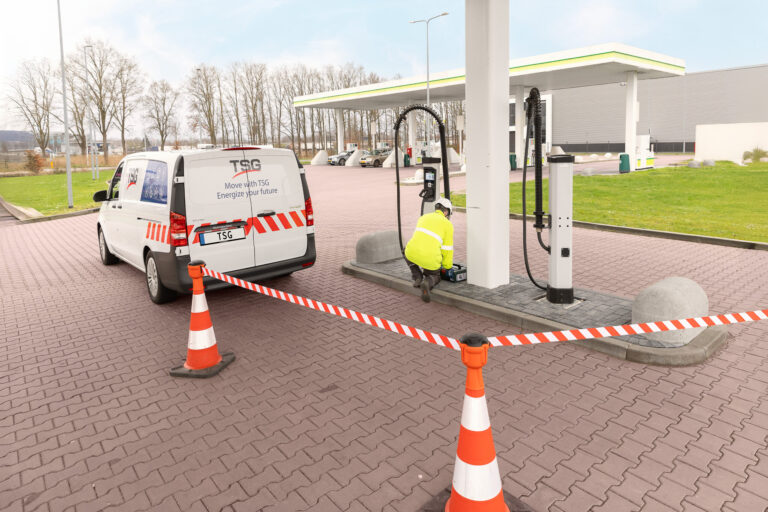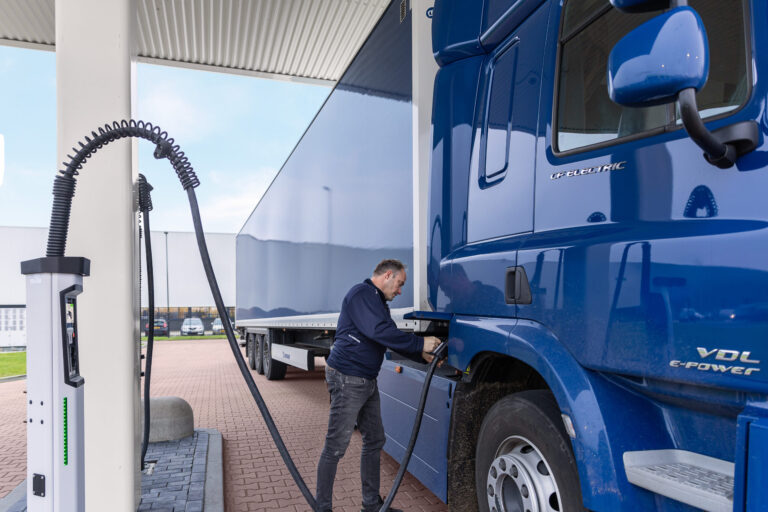Information on Charging Solutions...
1. What types of EV chargers are suitable for UK businesses?
There are two main types of chargers commonly used by businesses:
AC chargers (7.4kW–22kW) – Ideal for workplaces, fleet depots and locations where vehicles are parked for longer periods.
DC rapid chargers (50kW–350kW) – Best suited for high-traffic areas or sites where fast turnaround is essential, such as service stations or public charging hubs.
2. Where can EV chargers be installed?
Chargers can be installed in a variety of locations, depending on your business needs:
- On-site car parks, depots or garages
- Customer-facing areas for public use
- Designated employee parking bays (e.g. under the Workplace Charging Scheme)
3. What should we consider when planning an EV charger installation?
Planning an EV installation involves several key steps:
Electrical capacity – Assess whether your site has enough power to support the chargers. This includes reviewing current usage, estimating future load and identifying if an upgrade is needed.
Distribution Network Operator (DNO) – The DNO manages the local electricity network. If a new or upgraded connection is required, they will assess feasibility, provide a quote and carry out the connection if chosen.
Independent Connection Provider (ICP) – An ICP is an accredited alternative to the DNO. They can design and install the connection infrastructure, liaise with the DNO for approval and often deliver the work more quickly or flexibly.
4. How much does it cost to install EV chargers for my business?
Costs vary depending on charger type, site conditions and infrastructure requirements. For a tailored quotation, contact TSG UK Solutions.
5. Are there grants or incentives available in the UK?
Yes. The Workplace Charging Scheme (WCS) offers up to £350 per socket for up to 40 sockets per business. This can significantly reduce upfront installation costs.
6. Can I charge users for electricity?
Yes. Smart charging software allows you to set tariffs, monitor usage and integrate with payment systems to manage access and billing.
Technical & Installation
7. What’s involved in the EV charger installation process?
A typical installation includes:
- Site survey and assessment
- Electrical capacity check
- Charger selection and placement planning
- Groundworks and cabling
- Installation, testing and commissioning
8. How long does installation take?
Installation timelines vary depending on site complexity and power availability. Contact TSG UK Solutions for a project-specific estimate.
Strategic & Operational
9. Can I integrate solar panels or battery storage with EV chargers?
Yes. Solar and battery storage systems can reduce reliance on the grid, lower energy costs and support your sustainability goals.
10. What are the benefits of installing EV chargers for my business?
EV charging can help your business:
- Attract and retain employees and customers
- Support fleet electrification
- Enhance your environmental credentials and brand image
11. Who can help with EV charger installation and infrastructure?
TSG UK Solutions offers end-to-end support, including site assessments, charger selection, installation, maintenance and assistance with DNO and ICP works.

